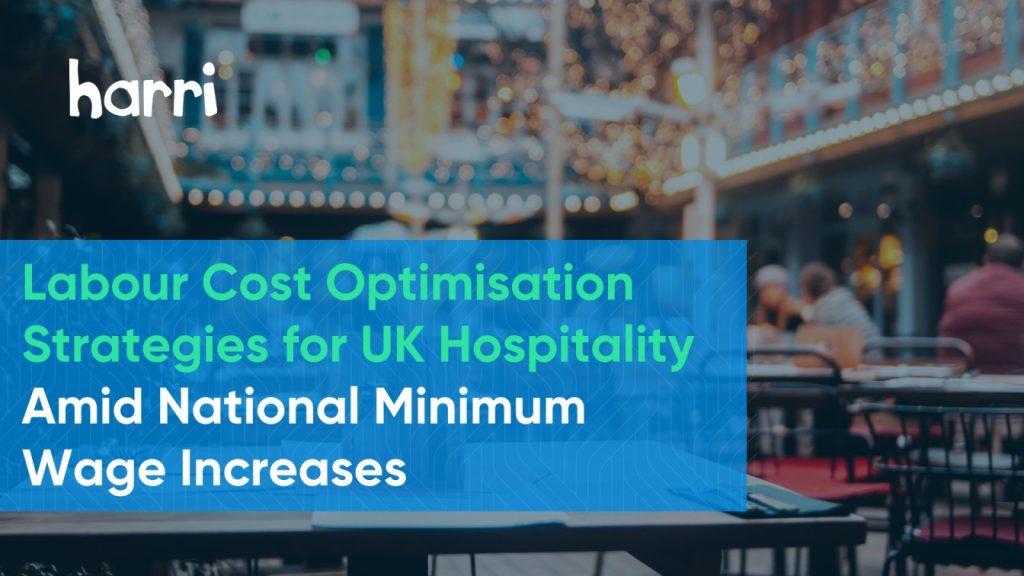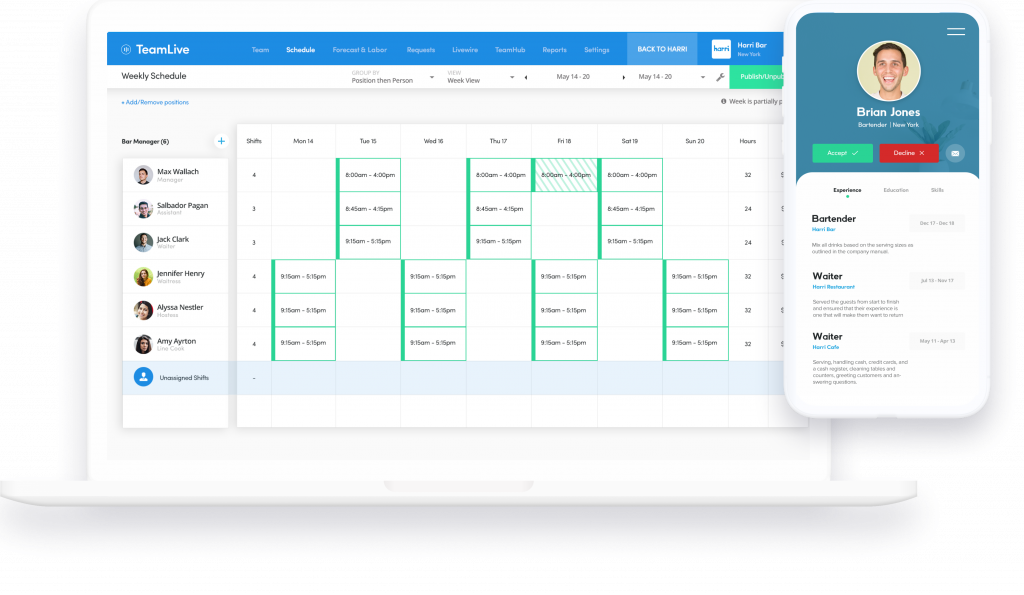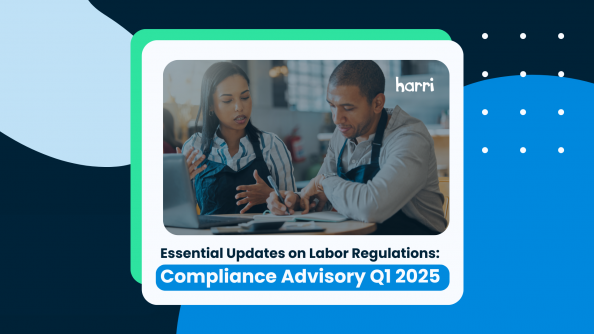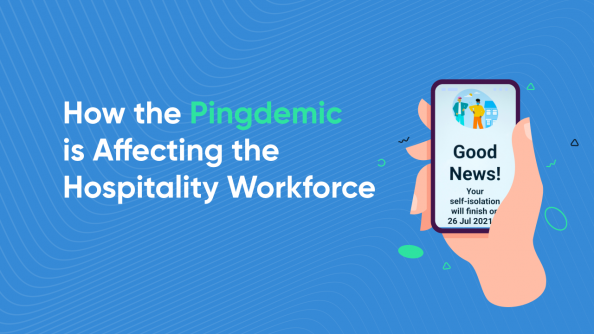Labour Cost Optimisation Strategies for UK Hospitality Amid National Living Wage Increase

- By Harri Insider Team | April 24, 2024
April 2024 marked a pivotal moment for the UK hospitality sector with the introduction of the largest increase to the National Living Wage since its inception—nearly 10%. This legislative adjustment not only lowered the age requirement from 23 to 21, broadening eligibility to include about 3 million more workers but also initiated wage hikes for younger employees under 21. Despite these changes not aligning earnings with the living wage in London, they significantly affect household budgets, covering roughly three months of housing or 18 weeks of food expenses.
Harnessing AI for Effective Demand Forecasting Amidst Wage Hikes
As the industry grapples with these increased labour costs, many operators are turning to a tech-forward approach to streamline operations and enhance efficiency. Artificial intelligence and digital processes are at the forefront of this shift, optimising labour costs by integrating data to accurately forecast demand and automate scheduling. This technological leverage allows for real-time adjustments and predictive analytics, ensuring staffing levels are efficiently managed during both peak and off-peak times. Moreover, automated scheduling systems consider compliance, employee preferences, and skill-based needs, thus eliminating the extra costs associated with overtime or temporary hires.
Furthermore, automation is crucial in maintaining compliance with the new wage regulations and reducing administrative overhead. Systems that enable automatic payroll adjustments and accurate timekeeping are essential for ensuring all employees are compensated according to the latest laws, significantly reducing compliance risks and potential legal issues. Additionally, these automated systems keep detailed records and generate reports for audits, alert managers to compliance issues, and reduce the administrative burden by managing routine tasks.
Ensuring Compliance and Efficiency Through Automation
Addressing schedule discrepancies is also vital; advanced monitoring systems track clock-in and clock-out times meticulously, which helps prevent unauthorised overtime and ensures adherence to labour laws. This automation allows operators to quickly address discrepancies in work schedules before they result in significant financial losses.
Preventing wage theft is another critical aspect of maintaining trust and integrity within the workforce. Technology plays an essential role by creating a transparent and accurate record-keeping system that tracks all employee transactions. This ensures each employee is paid correctly, safeguarding against both overpayment and underpayment and swiftly identifying any payroll anomalies to avoid potential legal and financial penalties.
Your managers are central to your operations, directly impacting both employee and guest experiences. Empowering managers with tools to automate certain tasks reduces administrative workload, allowing them to focus more on leading their teams and enhancing customer experiences, which translates to consistent profits. Additionally, less manual handling of tasks means fewer errors and cost savings that might otherwise slip through the cracks.

Improving Employee Satisfaction and Retention
In the face of rising labour costs, focusing on employee retention becomes increasingly important. Turnover is costly and can erode customer experience in the long run. Features like smart scheduling contribute to employee retention by addressing key job satisfaction aspects and work-life balance. When employees have input on their schedules, receive advance notice, and experience the flexibility to adapt to life’s unexpected changes, they are more likely to feel valued and remain loyal to their employer. This, in turn, builds trust between employees and management, fostering a positive workplace culture that supports retention.
Harri provides hospitality operators with targeted tools and strategies to mitigate cost impacts while enhancing operational efficiency and compliance. Here’s how Harri supports UK operators:
- Accurate Demand Forecasting: Utilising AI, Harri analyses diverse data sources to accurately forecast customer demand across the UK hospitality landscape. This enables operators to adjust staffing levels effectively during peak and quieter periods, directly aligning labour costs with revenue generation.
- Automated Scheduling: Harri’s advanced scheduling tools are designed to adapt in real time to the latest wage regulations, including the increased minimum wage thresholds. These tools also respect employee preferences and adhere to labour laws, reducing the risks associated with overtime and the reliance on temporary staff.
- Operational Efficiency and Compliance: With automation capabilities tailored for UK regulations, Harri helps operators streamline payroll adjustments and maintain precise timekeeping. This ensures all staff are compensated in accordance with the new wage standards, thereby reducing administrative burdens and safeguarding against compliance risks.
- Preventing Wage Theft: Harri’s technology offers transparent, accurate record-keeping and automated payroll systems that prevent both overpayment and underpayment. This not only protects against potential legal penalties but also builds trust within the workforce by ensuring that wage increases are implemented fairly and accurately.

By integrating Harri’s solutions, UK hospitality operators can effectively manage the financial implications of the minimum wage increase. By leveraging Harri’s technology and intelligence tools, operators can stay compliant with new regulations while also boosting operational efficiency and employee satisfaction, ensuring that hospitality venues can thrive despite economic challenges.




















